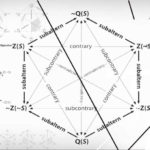We run our website the way we wished the whole internet worked: we provide high quality original content with no ads. We are funded solely by your direct support. Please consider supporting this project.
Isn’t it true that God doesn’t know the future in the open view?
This is the single most common misconception people have about the open view. Open Theists and Classical Theists disagree about the nature of the future, not about how much God knows about it. Both sides grant that God knows everything. He is omniscient. He knows everything there is to know about all of reality, including the future. The disagreement is that, whereas Classical Theists believe that the future consists entirely of settled realities — and thus hold that God knows it as entirely settled — Open Theists believe that the future is partly comprised of possibilities — and thus hold that God perfectly knows it as partly comprised of possibilities.
Have you ever read one of those Choose Your Own Adventure books? The author writes out a number of possible story lines from which a reader can choose. The reader has a choice about which story line they want to read, but would anyone say the author of the book doesn’t know the future of their own book because of this? Of course not. It’s just that, in contrast to novels that include only one story line, their book includes a number of possible story lines, and the author knows all of them.
So it is with God in the open view. God creates something like a “choose your own adventure” world. The Creator sets up the parameters of human freedom and pre-settles whatever he wants to pre-settle while leaving open to human free will whatever he wants to leave open. He foreknows perfectly all the possible story lines that free agents could follow. Now, would you say this Creator doesn’t know the future? How could we say this? He foreknows all the possible story lines.
The difference between the classical view of the future and the open view of the future is that, in the open view, God has to know much more than in the classical view, just like the author of a Choose Your Own Adventure book must know more than a traditional novelist in knowing his book. But Open Theists are convinced God is capable of this much more extensive knowledge.
Category: Q&A
Tags: Open Theism, Q&A
Topics: Open Theism What it is and is not
Related Reading

Open Theism: A Basic Introduction
On Monday and Tuesday, Greg explained Molinism and contrasted it against the open view of the future. (Click here for part 1). Because many see the open view as a limited view of God, it’s helpful to be clear that this has less to do with the nature of God and is about the nature…

Open Theism Timeline
Open Theism Timeline by Tom Lukashow An argument that is frequently raised against the open view is that it is a recent innovation. Paul Eddy had discovered Calcidius, a fifth century advocate, and I and others knew of L.D. McCabe and Billy Hibbard, two 19th century advocates. But that was about it – until I…

Is it true you’re an “Open Theist” and that you don’t think God knows the future perfectly?
I am an “Open Theist” – though I honestly don’t care for the label, because as I’ll show, the uniqueness of this view isn’t in what it says about God but in what it says about the nature of reality. (I think it would be better to call us something like “Open Futurists.”) In any…

The Logical Hexagon Made Simple
by: Greg Boyd The Hexagaon in a Nutshell For those of you who don’t have the twenty to thirty minutes it will probably take to read this essay but who nevertheless would like to have some idea of what the Logical Hexagon is all about, here is my two sentence elevator speech: The Logical Hexagon…

How do you respond to 1 Kings 13:2–3?
The Lord proclaims against the pagan alter of Jeroboam, “O altar, altar, thus says the Lord: ‘A son shall be born to the house of David, Josiah by name; and he shall sacrifice on you the priests of the high places who offer incense on you, and human bones shall be burned on you.’ He…

What is the significance of Exodus 32:33 ?
The Lord says “I will blot out of my book” all those who persist in rebellion against him. If everything is eternally foreknown by God, one wonders why he would have recorded in his “book” the names of people who were to be blotted out eventually (cf. Rev. 3:5). Indeed, if God foreknew that certain…
